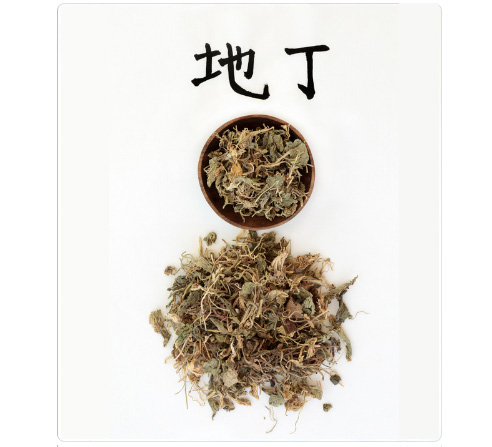Traditional Chinese Medicine
Herbal medicine is the main treatment method within Traditional Chinese Medicine (TCM). Although acupuncture was the first Chinese method of treatment to gain wide acceptance in the West, Chinese herbal medicine is quickly establishing itself as one of the most popular and effective alternative therapies.
The World Health Organization recognizes Traditional Chinese Medicine’s ability to treat over 43 common disorders.

FREQUENT QUESTIONS
Do all the herbs come from China?
The Chinese have incorporated herbs from all over the world. 15% to 20% of the 500 ingredients used in Chinese herbology originated from outside China. These herbs are prescribed according to Chinese medical theory and TCM pattern diagnosis.
How are Chinese herbal medicines applied?
Common ways of using Chinese herbs are:
- Herbal Decoction. This is the very traditional method to use Chinese herbs. Decoction is extracted by boiling the herbs for a specific period of time. The decoction is then taken multiple times daily.
- Herbal Pills or Capsules. This is probably the most convenient way to use herbs. Raw herbs are powderized and then compressed into pills or encapsulated into capsules. It is then taken orally with water.
- Herbal Granule. This is one of the more contemporary ways of using Chinese herbs. Through extracting processes, herbs are made into dissolvable, concentrated granules. They then can be encapsulated or used in the form of tea by adding water.
- External Use. Herbs are made into tincture , oils etc specifically for external use. This is an effective approach to treat various skin disorders, muscular-skeletal conditions etc.
What are the benefits of drinking Chinese herb medicines in liquid form?
Freshly made Chinese herbal tea is no doubt the strongest and the most effective way to use herbs clinically. It works much quicker and efficient. More importantly, t his method allows the practitioner maximum flexibility in writing a prescription. They can put in just what is necessary in just the right amounts. The formula can be changed frequently, if necessary.
Do Chinese herbal medicines have side effects?
Most of the components of Chinese herbal medicine have a very low toxicity compared to even common, over-the-counter Western drugs. When they are prescribed according to a correct TCM pattern diagnosis, they should have few, if any, side effects, only beneficial healing results. From TCM standpoint, an herb is prescribed only when certain clinical symptoms have manifested. Any unnecessary use or abuse of Chinese herbs can lead to significant consequences.
How long does it take to see results with Chinese herbal medicine?
In acute conditions, results may occur in a matter of minutes. In chronic conditions, some results should be seen within two weeks. Although chronic conditions may require taking Chinese herbal medicine for a long time, signs that the medicine is working should be apparent to the patient and practitioner alike almost from the very start. Read about our Traditional Chinese Medicine results.
What's the difference between Western folk herbalism and Chinese herbal medicine?
Western folk herbalism primarily treats diseases or symptoms, such as headaches, runny nose, menstrual pain, etc. Chinese herbal medicine, when practiced as a part of TCM, is based on an individualized pattern diagnosis as well as a disease diagnosis. Your pattern is made up of your signs and symptoms, your emotional temperament and the overall composition of your body. The TCM patient receives a custom written herbal prescription designed to treat their individual pattern as well as the symptom or disease. The formula is crafted to treat your entire pattern as well as the symptoms or disease that prompted you to seek treatment. TCM formulas may include six to eighteen herbs to treat the symptoms or dis ease as well as your entire pattern
How do I know if a practitioner is professionally trained in Chinese herbal medicine?
Although Chinese herbal medicines are safe when prescribed by a trained, knowledgeable practitioner, they are strong medicine. Patients should ask about where the practitioner trained, how long the training was, how long he or she has been in practice, and what experience the practitioner has had in treating the patient’s specific ailment.
Does Chinese herbal medicine work for Western patients?
Yes, Chinese herbal medicine works as well for Westerners as it does for Chinese. Chinese herbal medicine has been used successfully in North and South America, Europe, Africa, Australia, New Zealand, and all throughout Asia.
The World Health Organization Recognizes Traditional Oriental Medicine’s Ability to Treat Over 43 Common Disorders Including:
Human disease, including acute diseases, like intestinal flu and the common cold. Chronic diseases, such as allergies, gynecological disorders, autoimmune diseases, and chronic viral diseases. Degenerative diseases due to aging. Chinese herbal medicine is especially good for promoting the body’s ability to heal and recover from illness.
Gastrointestinal Disorders, such as food allergies, peptic ulcer, chronic diarrhea, constipation, indigestion, gastrointestinal weakness, anorexia and gastritis.
Urogenital Disorders, including stress incontinence, urinary tract infections, and sexual dysfunction.
Gynecological Disorders, such as irregular, heavy, or painful menstruation, infertility in women and men, and premenstrual syndrome (PMS).
Respiratory Disorders, such as emphysema sinusitis, asthma, allergies and bronchitis.
Disorders of the Bones, Muscles, Joints and Nervous System, such as arthritis, migraine headaches, neuralgia, insomnia, dizziness and low back, neck and shoulder pain.
Circulatory Disorders, such as hypertension angina pectoris, arteriosclerosis and anemia.
Emotional and Psychological Disorders, including depression and anxiety.
Addictions, such as alcohol, nicotine and drugs.
Eye, Ear, Nose and Throat Disorders
Supportive Therapy for other chronic and painful debilitating disorders.